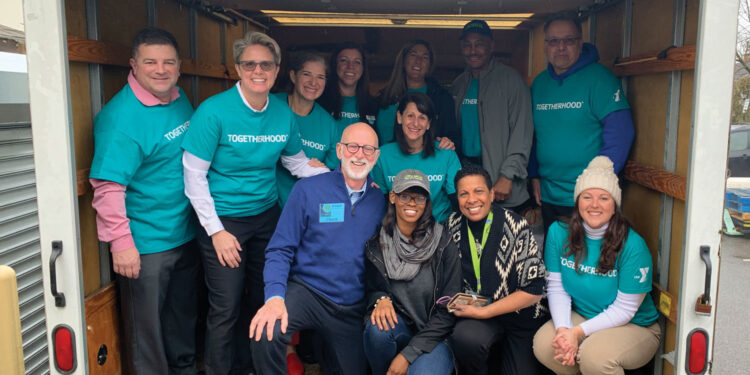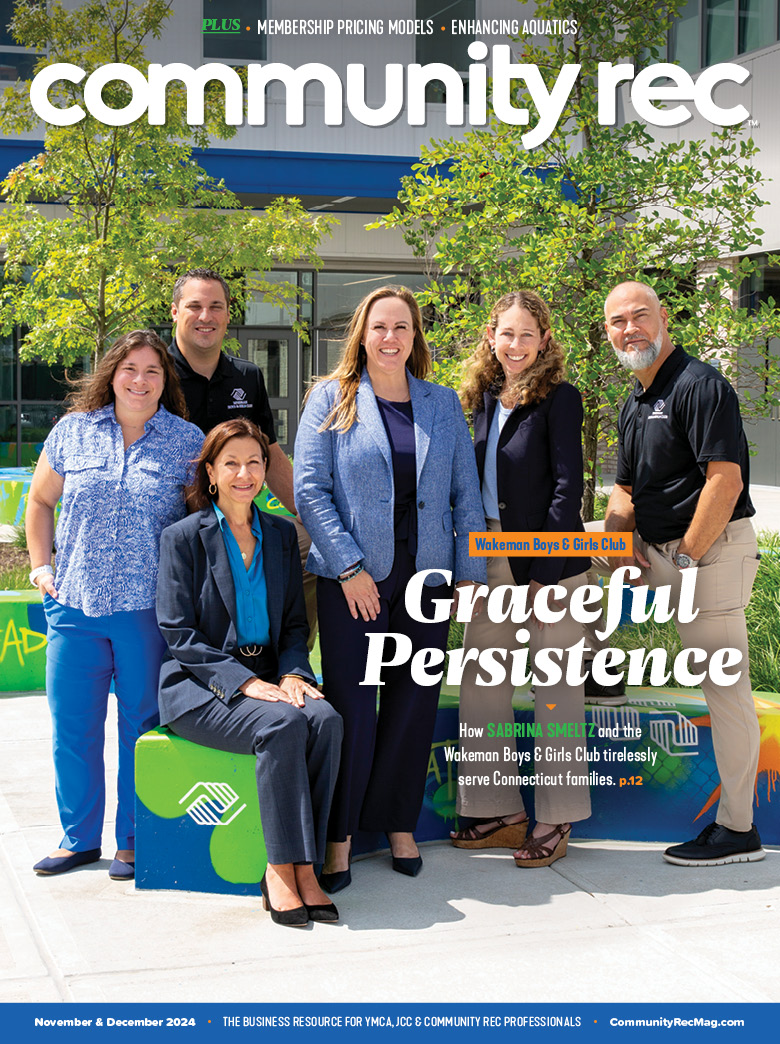How the YMCA of Greater Monmouth County is combatting the mental health crisis through partnership, collaborative leaders and the motto, “Stronger Together.”
Laurie Goganzer grew up in a house where there was always someone who needed a helping hand living in their spare bedroom. Whether it was somebody from her church or community, her mom always wanted to help other people and be of service — even while raising three kids.
From a young age Goganzer’s mother taught her the importance of placing the needs of others above her own — a lesson she carries with her today as she serves as the president and CEO of the YMCA of Greater Monmouth County, which boasts 16 locations throughout central New Jersey.
“The mission of the organization, it resonates with me so much, and this work is a calling for me,” said Goganzer. “I love that we bring people together from all backgrounds, all walks of life — the inclusive nature of the YMCA really gets me excited. No one’s turned away, and I’m all about that.”
It’s clear to see the passion Goganzer has for her organization, especially when it comes to her leadership style, which can be summed up with two words — stronger together.
“My motto since I got here is ‘Stronger Together,’” explained Goganzer. “I signed all my emails, all my letters with ‘Stronger Together.’ We have well over 70 community partners that we work with to get this work done, to serve and to expand our ability to make an impact. Collaboration — whether it be around me, in the community with other partners, as well as with our team — is important. No one is in silos, and it’s that whole idea of together, we’re stronger. And I truly believe in that.”
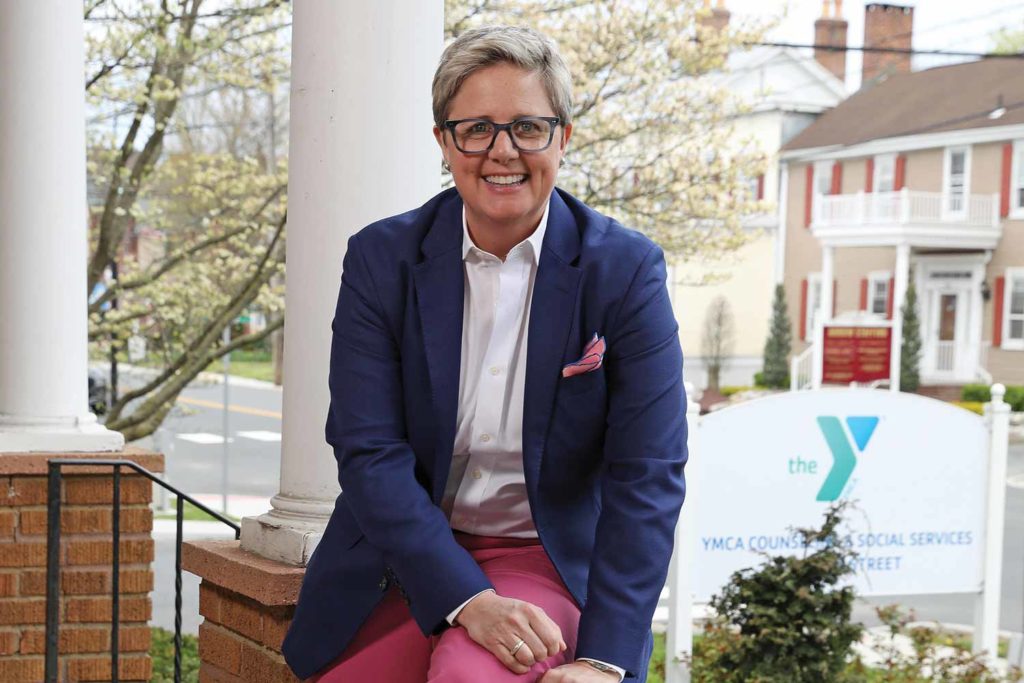
The Greater Monmouth Y collaborates with 77 community partners — from school districts and local townships to other nonprofit organizations and health care agencies — to respond to emergent and critical needs in the communities they serve. From helping people recover from the 2012 Superstorm Sandy that devastated the shore communities to distributing over 38,000 meals during the COVID-19 pandemic, the Y has risen to the occasion to support their community multiple times.
However, where the Greater Monmouth Y’s impact really shines is through its extensive, high-quality well-being services to help combat the mental health crisis— a problem that has increased since the COVID-19 pandemic.
“The numbers are staggering,” explained Goganzer. “One in three Americans are still grieving the loss of a loved one due to the virus. One in three Americans lost a loved one. The CDC did a national survey, and one of the things we saw is over 43% of the respondents reported symptoms of anxiety, depression and an increase in substance use. So, we know there’s a trend here. It’s not getting better; it’s getting worse.”
In New Jersey alone, the Department of Children and Families reported a 50% increase in suicide attempts and suicide deaths since August of 2020. Additionally, drug overdose deaths across the country have also increased by over 30% since the pandemic began.
While the past two years has helped reveal the importance of combating the mental health crisis, it’s not what got the Greater Monmouth Y involved.
Unique to the traditional YMCA model, it has been providing high-quality, client-centered, therapeutic counseling and support services since 1974 through the Counseling & Social Services Branch. The branch offers a variety of programs in-person and through telehealth designed to meet the ever-changing needs of the community.
But the Y’s work in mental health doesn’t stop there.
The Y’s Young People’s Outpatient Program — for children ages three to 18 years old — provides confidential therapeutic counseling in 100 schools during the school day, several community sites and three of the Y locations.
“The program has grown significantly over the past five years as mental health needs for youth increase,” said Goganzer. “During the pandemic, when schools were shut down, our team shifted to telehealth to continue providing these vital services to youth and teens, and we’ve integrated mental health into many of our youth programs, including childcare and summer camp.”
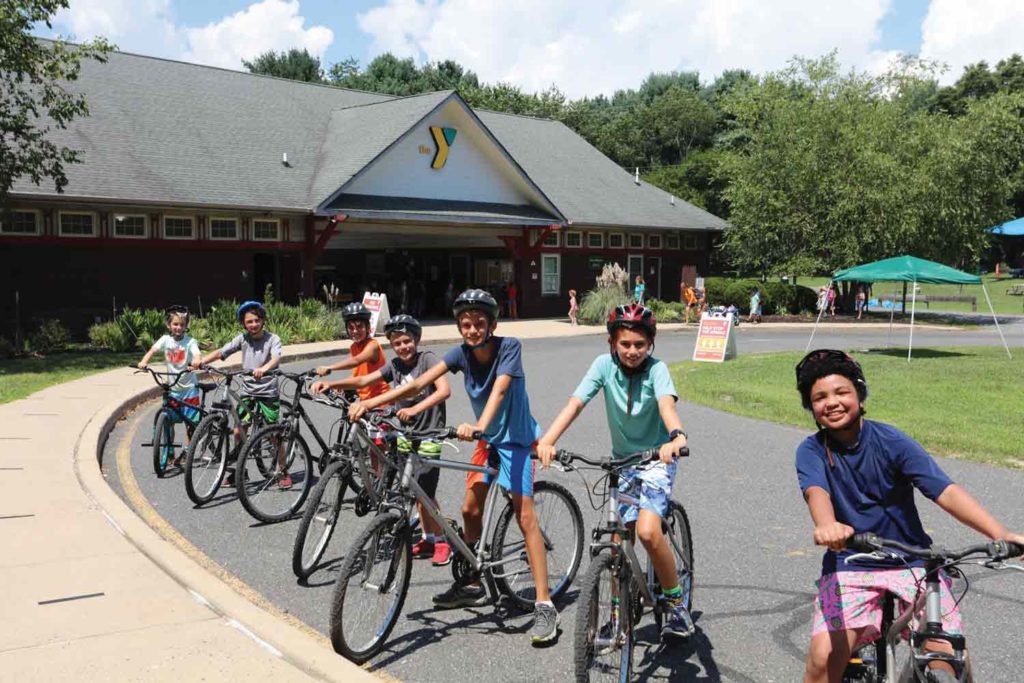
The counseling and social services team also leads the Traumatic Loss Coalition in two New Jersey counties, responding to support for schools and communities that have experienced suicide or other traumatic loss. They partner with several organizations to provide suicide prevention training, education and support. Additionally, the Y operates a state-funded Family Success Center which provides no-cost, wrap-around resources and support for families before they find themselves in crisis.
All in all, this incredible social services team is comprised of approximately 150 full-time and part-time social workers, counselors and human services professionals, and a psychiatrist. All help strengthen individuals and families.
While tackling mental health is hard work, Goganzer said she’s fulfilled knowing the Y is playing a critical role in caring for the community and leading the way in recovery efforts.
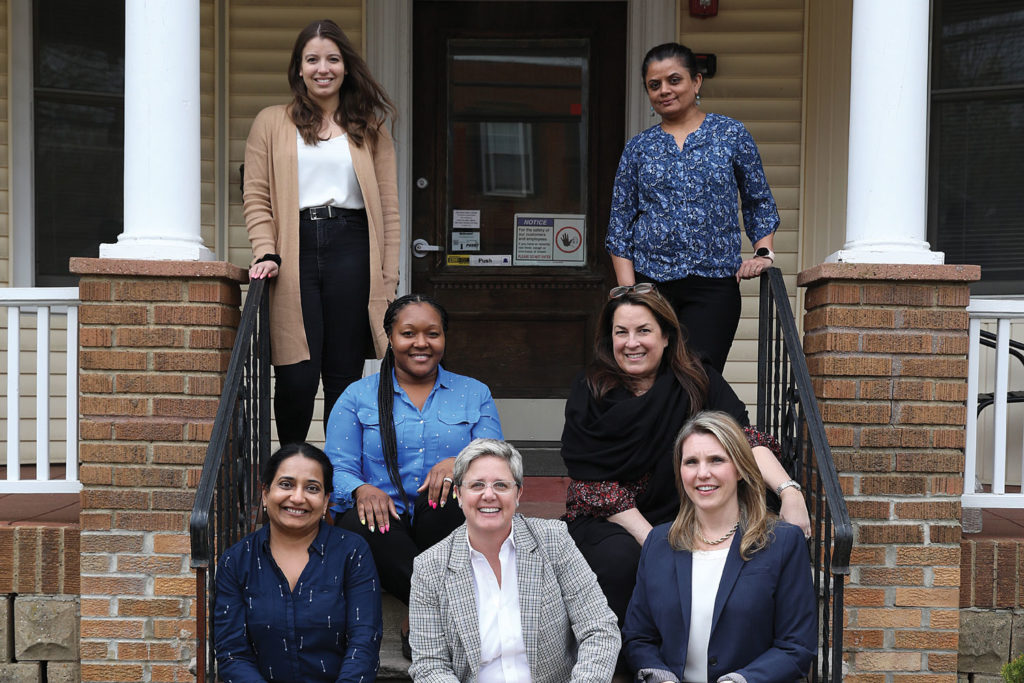
“Our work in mental health has also raised the visibility of our Y as a social services organization,” Goganzer elaborated. “The world is not just seeing us for our pools, fitness centers or gyms, which is oftentimes the case for the YMCA nationally. We’re really seen as a social services organization. Our community and our supporters really understand our cause and our mission more. Our philanthropic support is stronger than it’s ever been. And the pandemic — that’s the silver lining. The world got to see us roll up our sleeves and actually do the work.”
The Greater Monmouth Y’s work in behavioral health began almost 50 years ago and has evolved over time to become the strong community support that it is today, but it’s taken time to get there. And it wouldn’t be possible without the help of many partners, proving Goganzer’s motto to be true, that together things are stronger.
“Our counseling and social services team work with a variety of partners to deliver these life-changing and lifesaving support services; we don’t just do it alone,” added Goganzer. “We work with the Department for Children and Families, we have a partner called the Society for the Prevention of Teen Suicide, we partner with our school districts — the list of partners goes on and on. We don’t work independently. We work collaboratively. And so, if you think about getting into this space, work with a partner, have the experts come in and get you started.”
While it’s exciting more community centers are thinking about offering mental health services, Goganzer said to her, it’s not really a choice to make, but rather an opportunity to elevate your mission and address a critical need in your community.
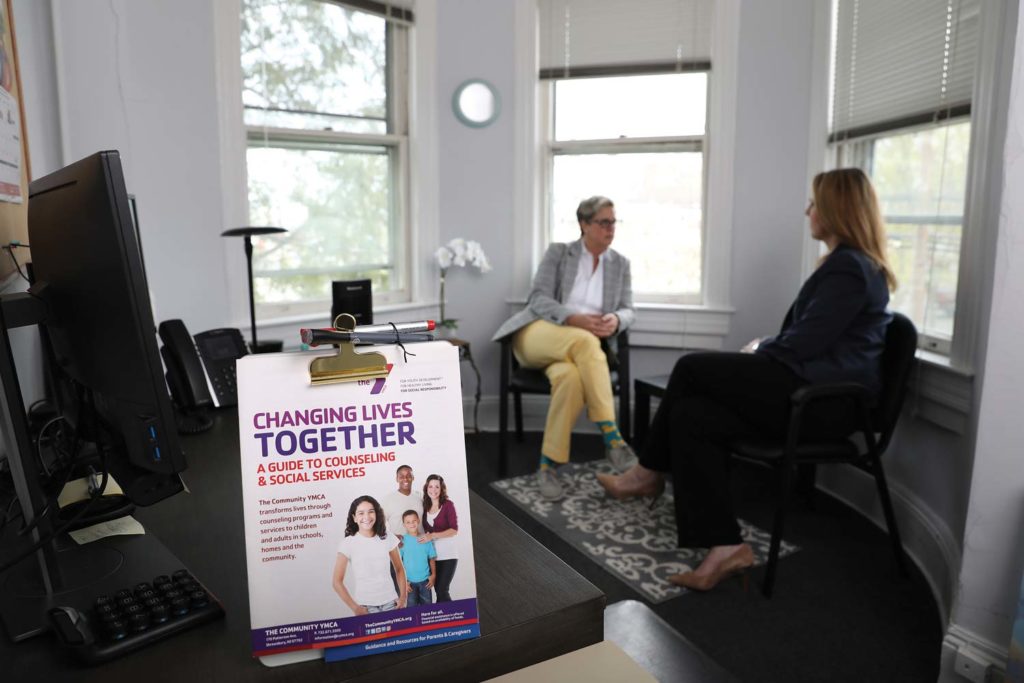
“I like to quote Charles Darwin; ‘Oftentimes it isn’t the strongest of species that survives nor the most intelligent but the ones most responsive to change,’” said Goganzer. “That adaptability piece is key. We need to embrace change. We need to get comfortable being uncomfortable. Everyone talks about needing stability right now, but what does that really mean? If stability means going back to the way things were before COVID-19, then stability can be a liability, not an asset.”
The “best” practices that have got the industry where it is today are important. But Goganzer added she thinks even more important is figuring out the “next” practices. Communities are counting on community rec centers to be successful.
Rising to the call, adapting to change and putting the needs of others first — a lesson that still proves important all these years later — is what Goganzer believes will make the entire industry stronger, together.
“We have to execute, and ultimately meet the challenges of today,” said Goganzer. “I believe now more than ever we’ve got to adapt to what and how things get done in order to thrive in tomorrow’s world.”
Photos by Bill Denver.


